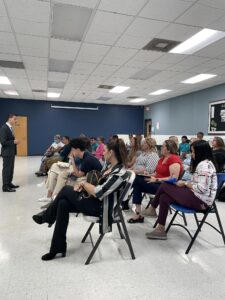If you’re like a lot of people across the nation, your understanding of the law might be incredibly broad. It’s likely a conglomerate of what you’ve learned from television and movies, talks with friends and family, and personal experience. So while you may not be able to cite state-specific laws, you probably can recognize when the law is being violated and when someone is adhering to it.
We realize though that sometimes it can be difficult to determine when the law has been broken. Take for example premises liability. Even though you may know that property owners are responsible for ensuring the safety of visitors to their property, you may not know exactly when fault is applied or when the owner becomes liable for compensation. Today, we’re going to look at three scenarios in which a property owner may be held liable, giving you an answer to the question in our post title.
Animal attack
As you may know, owners are responsible for the actions of their animals. So whether it’s a dog biting a person who then needs stitches, or a horse kicking an individual who then needs medical attention for broken bones, the animal’s owner is liable for the medical costs the victim amasses. If the owner was aware of a potential danger before the accident occurred, then the owner could be considered negligent, which can mean more compensation owed.
Slip-and-fall accident
Whether it’s a freshly washed floor, an ice-covered front stoop, or a muddy backyard, property owners should know that all of these conditions could lead to a slip-and-fall accident. Injuries from slips and falls can range in severity and could even be fatal in the worst of circumstances. Negligence also plays a factor, opening up a property owner to penalties in a civil action.
Negligent security
As you probably know, not all premises liability accidents happen on private residences. The owner of a commercial property could be held liable if their security efforts were not enough to prevent a serious accident from occurring. The absence of proper lighting in a parking lot at night or failing to hire enough security at a rowdy sporting event are both examples of situations where a person could be assaulted by someone else. In these situations, a property owner might be held liable because they had reason to believe that danger was possible but failed to provide proper security.








